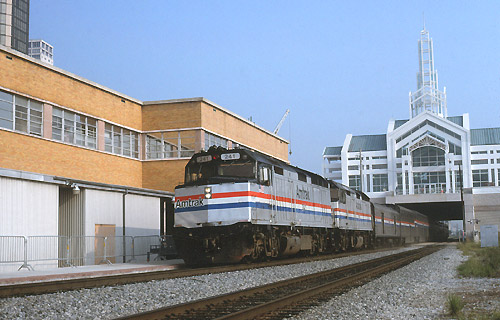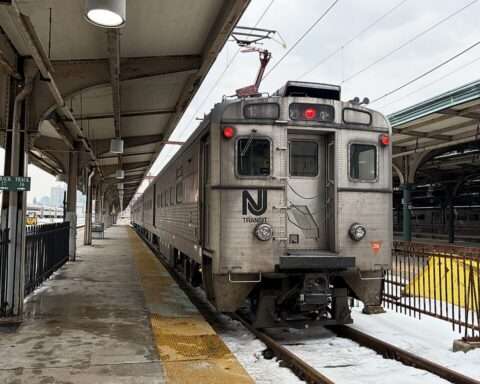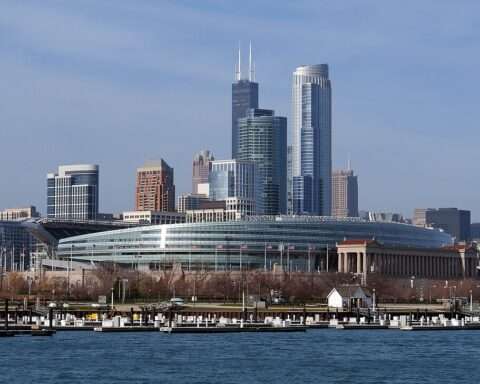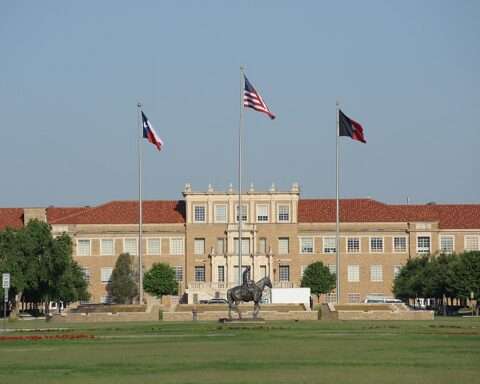Two cities located at opposite ends of the United States are making moves that could lead them to connect to other communities via passenger rail.
In the Midwest, a design firm has been hired to help with the early planning stages of a project to connect Fort Wayne, Indiana and Pittsburgh via passenger rail with a stop in Columbus, Ohio.
Approximately 1,000 miles away in the deep south, the Mobile, Alabama, City Council this week is expected to vote on an agenda item that could clear the way for a project that would bring Amtrak back to the Gulf Coast.
The City of Fort Wayne, in partnership with the Mid-Ohio Regional Planning Commission (MORPC) and the Southwestern Pennsylvania Commission (SPC), recently hired HNTB Corp. to establish the scope, schedule and budget for the planning work for the program.
Fort Wayne is paying the firm through a $500,000 Corridor Identification and Development (CID) grant.
The contract for these initial tasks goes through June 2025. A full timeline for the project has not been published.
“This is a major step forward in the public-private effort to reconnect Central Ohio to the nation’s passenger rail network,” MORPC Executive Director William Murdock said. “This partnership across several states helps to advance the required work to qualify for federal funds for implementation.
“It builds on years of work showing passenger rail is a critical investment for prosperity and attracting talent.”
The City of Mobile has been the lone holdout on a rail project that would run an Amtrak line from it to New Orleans through Mississippi. Mobile’s stop along the route is the only one that hasn’t been completed.
Residents along the Gulf Coast have been without passenger rail service since Hurricane Katrina in 2005.
Amtrak’s return to the Coast would include four Mississippi Coast stops in the cities of Pascagoula, Biloxi, Gulfport and Bay St. Louis.
That could change Tuesday night, with Mobile officials set to vote on three agenda items: a funding agreement with National Railroad Passenger Corporation for Gulf Coast rail service, an Intergovernmental Agreement with the Alabama State Port Authority, and a lease agreement for the platform with National Railroad Passenger Corporation for Gulf Coast rail service.
The potential action involves approving improvements to Mobile’s existing train platform that complies with Americans with Disabilities Act (ADA) standards as well as a ground lease for a portion of a city-owned parking lot near the Mobile Convention Center for an overlay track.
Once the agreements are in place and the funding is approved, work can begin, Mobile officials said.
All four Mississippi cities and the City of New Orleans have completed their portion of the necessary work.
The Mobile to New Orleans route is expected to run twice daily, allowing for commuting workers or tourists to take advantage of the transportation option.
Southern Rail Commission Chairman Knox Ross said when all elements have been finalized between the parties, the schedules, fares, start date and official name of the train service will come via a joint formal announcement from Amtrak and the Southern Rail Commission.
“All these plans involve partnership agreements, whether it is with Federal Railroad Administration for grants we and others have applied to receive, state departments of transportation for matching support and guidance, with our statehouses for legislation, the City of Mobile for the terminal location, with host railroads CSX and NS, and of course, with Amtrak,” Ross said.
Photo by Hikki Nagasaki













